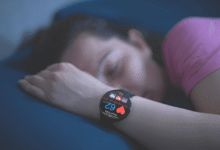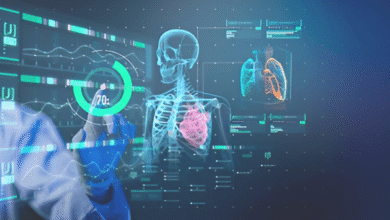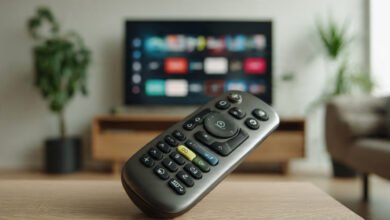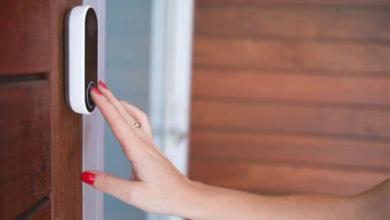Top Health Apps That Actually Improve Your Wellbeing
Health apps that boost wellbeing Discover top-rated fitness, mental health, and nutrition apps to transform your wellness journey in 2024.

In our digitally-driven world, health apps have become essential tools for enhancing physical, mental, and emotional wellbeing. With busy schedules and increasing stress levels, these apps offer convenient solutions to track fitness, manage nutrition, reduce anxiety, and improve sleep. From guided meditation to personalized workout plans, the right health apps can transform daily habits and lead to long-term wellness. This guide explores the most effective applications that genuinely make a difference in users’ lives, backed by science and user success stories.
Whether you’re a fitness enthusiast, someone struggling with stress, or simply looking to adopt healthier routines, there’s a health app tailored to your needs. These digital tools provide real-time feedback, expert guidance, and motivational support, making it easier than ever to take control of your health. By integrating them into your lifestyle, you can achieve measurable improvements in energy, mood, and overall quality of life. Let’s dive into the best options available today.
Top Health Apps That Actually Improve Your Wellbeing
Fitness and Exercise Apps
Staying active is crucial for maintaining physical health, and fitness apps like Nike Training Club and MyFitnessPal make it easier than ever. Nike Training Club offers a wide range of workout plans, from beginner to advanced levels, with video demonstrations to ensure proper form. MyFitnessPal, on the other hand, combines exercise tracking with calorie counting, helping users maintain a balanced diet while staying active. These apps provide customized workout routines, progress tracking, and motivational tools to keep users engaged. Another excellent option is Strava, a favorite among runners and cyclists. It tracks routes, speed, and distance while allowing users to compete with friends, adding a social element to fitness.
Mental Health and Meditation Apps
Mental wellbeing is just as important as physical health, and apps like Headspace and Calm have revolutionized mindfulness practices. Headspace offers guided meditations, sleep stories, and breathing exercises designed to reduce stress and improve focus. Its user-friendly interface makes meditation approachable for beginners. Calm, another leading app in this category, provides relaxing soundscapes, meditation sessions, and even masterclasses from mental health experts. Both apps help users develop a consistent meditation habit, which has been proven to lower anxiety and enhance emotional resilience. For those dealing with more specific mental health concerns, BetterHelp connects users with licensed therapists for online counseling, making professional support more accessible.
Nutrition and Diet Tracking Apps
Eating a balanced diet is fundamental to overall health, and apps like MyFitnessPal and Lifesum simplify nutrition tracking. MyFitnessPal’s extensive food database allows users to log meals effortlessly, while Lifesum offers personalized meal plans based on individual health goals. These apps also provide insights into macronutrients, helping users make informed dietary choices. For those with dietary restrictions, Yazio is an excellent alternative, offering tailored meal plans for vegans, keto followers, and gluten-free diets. Additionally, Noom takes a psychological approach to weight loss, focusing on behavior change rather than strict calorie counting. Its interactive coaching and educational content help users develop sustainable eating habits.
Sleep Improvement Apps
Quality sleep is essential for physical recovery and cognitive function, yet many struggle with insomnia or poor sleep patterns. Apps like Sleep Cycle and Pzizz use advanced algorithms to analyze sleep stages and wake users during the lightest sleep phase, ensuring they feel refreshed. Sleep Cycle also tracks snoring and provides detailed sleep reports to identify patterns. Pzizz, on the other hand, combines soothing sounds and voice guidance to help users fall asleep faster. Another great option is ShutEye, which offers white noise, sleep stories, and even a smart alarm to improve sleep quality. By monitoring sleep habits and offering relaxation techniques, these apps help users achieve deeper, more restorative rest.
Chronic Condition Management Apps
For individuals managing chronic illnesses like diabetes or hypertension, apps such as MySugr and Blood Pressure Monitor are invaluable. MySugr helps diabetics track blood sugar levels, medication, and carb intake, while Blood Pressure Monitor logs readings and provides trend analysis. These apps empower users to take control of their health by offering actionable insights and reminders. Similarly, AsthmaMD allows asthma patients to record symptoms and triggers, helping them and their doctors identify patterns for better treatment. By integrating these apps into daily routines, individuals with chronic conditions can improve their long-term health outcomes.
Future Aspects of Top Health Apps
AI-Powered Personalization for Tailored Health Plans
Future health apps will leverage Artificial intelligence (AI) to provide hyper-personalized recommendations. Machine learning algorithms will analyze user data such as activity levels, sleep patterns, and dietary habits to create customized fitness routines, meal plans, and mental health strategies. AI-driven chatbots may also offer real-time coaching, adjusting recommendations based on progress and feedback.
Integration with Wearable Technology and IoT
The synergy between health apps and wearable devices (like smartwatches, biosensors, and ECG monitors) will deepen. Future apps will sync seamlessly with wearables to track real-time vitals, including blood oxygen levels, glucose monitoring, and even early signs of illness. IoT-enabled smart scales, blood pressure cuffs, and sleep trackers will feed data directly into apps, providing a comprehensive health dashboard.
Virtual and Augmented Reality for Immersive Wellness
Virtual Reality (VR) and Augmented Reality (AR) will transform fitness and mental health apps. Imagine guided meditation in a virtual Zen garden or high-intensity workouts in a digitally simulated environment. AR could overlay real-time posture corrections during exercise, while VR therapy might help treat anxiety and PTSD through controlled exposure sessions.
Predictive Healthcare and Early Disease Detection
Advanced health apps will move beyond tracking to predictive analytics. By combining genetic data, lifestyle habits, and biometrics, apps could warn users of potential health risks (like diabetes or cardiovascular disease) before symptoms appear. Partnerships with healthcare providers will enable early interventions, reducing long-term medical costs.
Mental Health Focus with Emotion Recognition Tech
Future mental health apps may incorporate emotion-detection AI through voice analysis, facial recognition, and typing patterns. These apps could detect stress, depression, or anxiety spikes and suggest coping mechanisms or connect users with therapists instantly. Mood-tracking will become more accurate, helping users understand emotional triggers.
Blockchain for Secure Health Data Management
Privacy concerns will drive the adoption of blockchain technology in health apps. Decentralized storage will give users full control over their medical data while allowing secure sharing with doctors or insurers. Smart contracts could automate health insurance claims based on verified fitness achievements.
Gamification and Social Wellness Challenges
To boost engagement, future apps will incorporate more gamified elements rewarding users with NFTs, discounts, or virtual trophies for meeting health goals. Social features will expand, allowing community challenges, live group workouts, and wellness competitions with friends or global users.
Read More: Meet Your New Doctor: The Rise of Virtual Health Assistants
Conclusion
In our digitally-driven world, health apps have become essential tools for enhancing physical, mental, and emotional wellbeing. With busy schedules and increasing stress levels, these apps offer convenient solutions to track fitness, manage nutrition, reduce anxiety, and improve sleep. From guided meditation to personalized workout plans, the right health apps can transform daily habits and lead to long-term wellness. This guide explores the most effective applications that genuinely make a difference in users’ lives, backed by science and user success stories.
Whether you’re a fitness enthusiast, someone struggling with stress, or simply looking to adopt healthier routines, there’s a health app tailored to your needs. These digital tools provide real-time feedback, expert guidance, and motivational support, making it easier than ever to take control of your health. By integrating them into your lifestyle, you can achieve measurable improvements in energy, mood, and overall quality of life. Let’s dive into the best options available today.
FAQs
Which is the best Health Apps for fitness tracking?
Nike Training Club and Strava are excellent for tracking workouts, while MyFitnessPal combines exercise and nutrition logging for a holistic approach.
Can meditation apps really reduce stress?
Yes, apps like Headspace and Calm use evidence-based techniques to lower stress and improve mindfulness with regular practice.
Are diet-tracking apps accurate?
Most apps, such as MyFitnessPal and Lifesum, rely on verified databases, but user input accuracy plays a role in tracking precision.
How do sleep apps improve rest?
Apps like Sleep Cycle analyze sleep patterns and wake users at optimal times, while Pzizz uses sound therapy to induce relaxation.
Are there free health apps available?
Many apps offer free versions with basic features, while premium upgrades provide additional functionalities for a fee.










